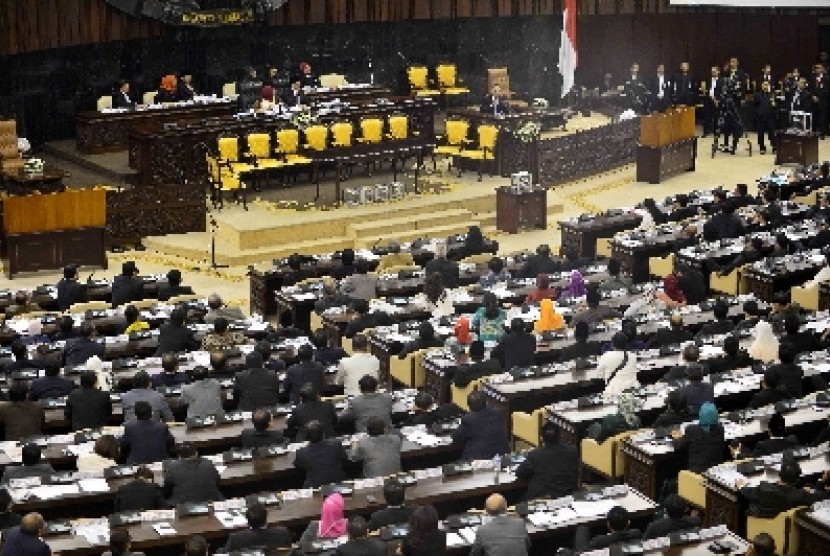REPUBLIKA.CO.ID, JAKARTA - Law expert from the state Gajah Mada University Zainal Arifin Mochtar said the law No. 17 of 2014 on People's Consultative Assembly (MPR), Parliament (DPR), Regional Representative Council (DPD) and Regional Legislative Assembly (DPRD) has again discounted the decision of the Constitutional Court (MK).
The issuance of the law known as MD3 Law has triggered a big controversy mainly as it is a revision of the law on regional elections.
Under MD3 Law, provincial governors and leaders of lower regional administrations would be elected by regional legislative assemblies (DPRD) instead of directly by the people as already practiced in the country in the past ten years. Through the law, the parliament has also reduced the authority of DPD in legislation although DPD and DPR are equal in position as high state institutions.
"In reality MK already gave a broad outline for the empowerment and strengthening of the functions of DPD in its decision no.92/PUU-X/2012," Zainal Arifin said when giving his expert opinion at a judicial review on the MD3 Law at the MK on Monday.
Zaenal Arifin said the MK's decision gave conceptual lines of relations between the parliament and DPD, that DPD was not a subordinate of the parliament. Therefore, discussion of draft laws was a tripartite debate involving the parliament, DPD and the government, although not up to the final as the final approval involved only the president and DPR, he said. Similarly in the national legislation process in which DPD should be involved, he added.
However, the MD3 Law has again reduced the decision of MK and caused a process "very much" imbalanced between the parliament and DPD, he said.
"The move by the parliament (in passing the MD3 Law) is a rebellion against the concept of constitutional state, which gives MK the authority to build a corridor that should be obeyed by other high state institutions as part of law order in a constitutional state," he added.
DPD has brought the case to MK seeking judicial review of the MD3 law as it has reduced its authority. A DPD member, I Wayan Sudirta, said the MD3 Law is against the 1945 Constitution as DPD should have separate law. Based on the 1945 Constitution, DPD has the authority to propose and discuss draft laws, I Wayan Sudirta argued.


